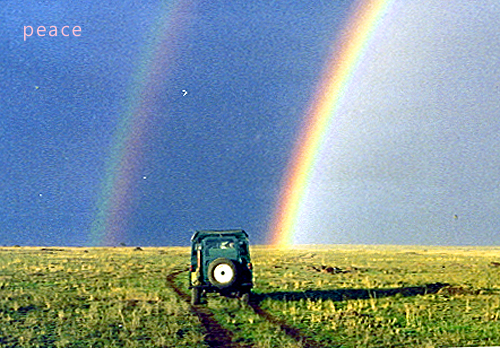 Militarism in Africa is growing fast, started almost the day Obama began his first term, and now totally out of the closet. Across the continent, successful wars – both waged from abroad and locally – are bringing stability to a continent known for its instability.
Militarism in Africa is growing fast, started almost the day Obama began his first term, and now totally out of the closet. Across the continent, successful wars – both waged from abroad and locally – are bringing stability to a continent known for its instability.
News this week from probably the most troubled place on the continent, the DRC-Congo, suggests that ace South African troops and Tanzanian soldiers are cleaning up a place that has been known for nothing but blood and brutality for nearly 40 years.
With enormous French involvement, Mali is once again stable, its terrifying short submission to al-Qaeda in the Maghreb completely ended.
Yesterday, the UN Security Council approved strengthening its military involvement in the CAR, which descended into chaos about six months ago, a perfect domino example of Obama’s chasing what was left of al-Shabaab through Uganda and the DRC.
And Kenyan forces (trained, guided and funded by Obama) has pacified most of Somali. And we all know about Egypt, where that country’s short flirtation with real democracy was ended by its own military.
Africa is the second largest continent in the world with more than a quarter of the world’s countries and about a sixth of its population. But there is no question it is the most widely troubled continent.
There are places like Korea and the Mideast where conflict is more intense and concentrated, but look over a period of a decade or more, tabulate the casualties and miseries of wanton guerrilla war and untold brutality, and Africa wins.
Lack of strong governments and the consequential lack of development that follows has kept the Dark Continent darker than we could ever have imagined. Until, perhaps, now.
I think that the fatigue of war is the reason we see new stability. African societies are exhausted by conflict, and this is hard to explain, because it isn’t as if a single individual like you or I closes his eyes and throws the back of his hand onto his forehead in exasperation as we recount the chapters of conflict in the past.
Many people in these conflict areas die as children. More live an entire life in conflict, navigating their daily routines through competing authorities that are usually swiftly brutal if disobeyed.
In many cases like the DRC-Congo, multiple generations have plowed through their lives in a virtual anarchistic state, learning to submit to nothing but violence. Concepts like democracy or peaceful change are foreign if laughable. You do what the man with the gun tells you to do.
But as these conflicts were not settled for so many years, they festered and grew. At the periphery were more developed societies that were suddenly impacted by refugees, disease and trade disruptions.
That’s what’s happening in the DRC-Congo, now. “Peacekeeping is changing,” writes South African analyst Liesl Louw-Vaudran, because “there was no peace to keep.”
So the UN Security Council’s attempt to send peacekeepers into the Congo wasn’t even good enough to stop the M23 rebels from earlier this year taking over the main city of Goma where the UN peacekeepers were garrisoned.
The South African and Tanzanian brigades aren’t as polite, receiving their mandate not from the Security Council but from the African Union. Not satisfied with protecting any status quo, these guys – like Obama – are chasing the bad guys away.
Obama’s strong and sustained hunt of terrorists has cleaved the continent with war, as American and French covert forces, with their Kenyan and Ugandan proxies, disrupted one terrorist group after another.
But five years into the exercise, with drones like birthday balloons all over the place, it seems to be working.
The spectacular terrorist attack on the Westgate Mall in Kenya several weeks ago, much less the less spectacular but terrifyingly frequent smaller attacks the country has been suffering almost on a weekly basis, is the expected reaction to this growing militarism.
And it will continue. As the bad guys are routed from the cities, they will regroup in the hills. And then as they’re chased from the hills, they’ll regroup in virtual space as we learned when investigating the Westgate attack.
And while they don’t command attack helicopters, they’ve figured out pretty awful IEDs.
So it’s hard to see an end point. Yes, the conflict points have been pushed much further away from most of Africa’s peoples than ever before, and this is why the continent is becoming more peaceful. But they aren’t gone.
And until the fundamental motivations for those conflicts are more fully resolved, they will never disappear.